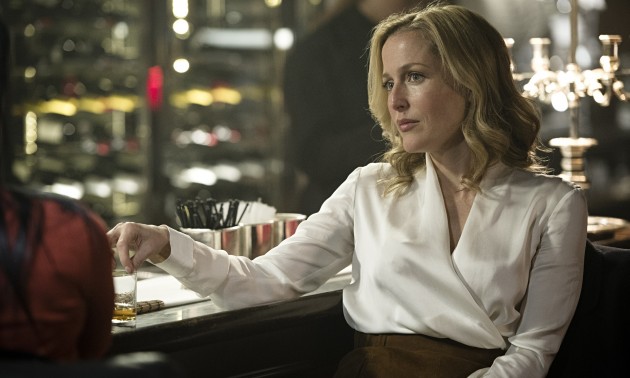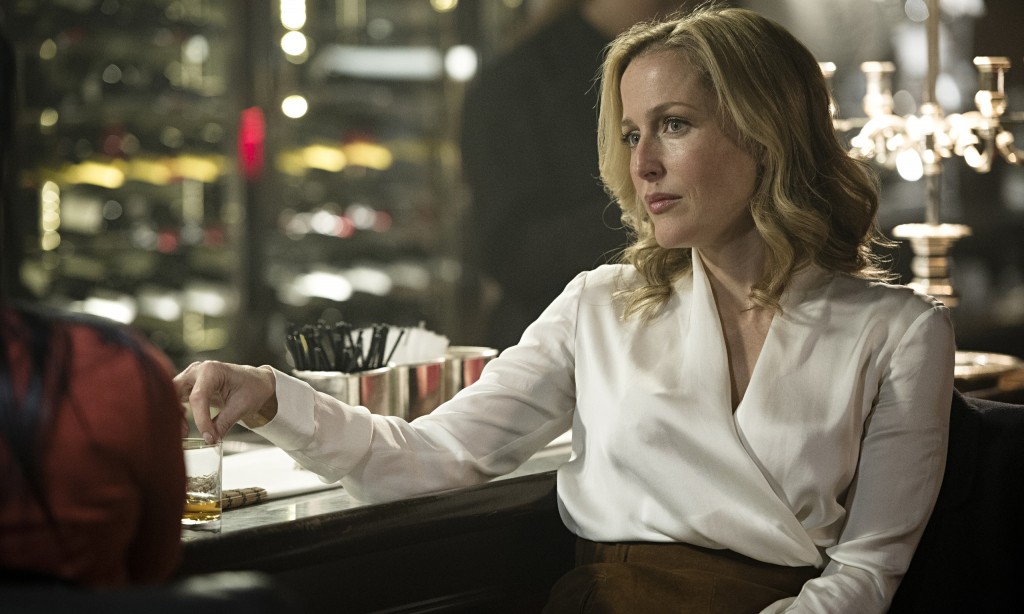Your mum’s favourite serial killer is back. At the end of last year’s five-episode run of BBC2’s The Fall, Paul Spector (Jamie Dornan) packed in his moonlighting strangling escapades and carted his family onto the next Stenna Line to the Highlands. But you can’t keep a good stalker down, especially when he’s one half of the BBC’s most locally successful and internationally exportable drama for years. In last week’s sophomore opener, he’s back to eyeing up brunettes on the Larne line. In the meantime, creator Allan Cubbit has had to defend the show against claims that it glamourizes female violence, The Daily Mail, displaying its usual proclivity for reasonableness, called it ‘the most repulsive drama ever broadcast on British TV’ and ‘our Jamie’ was drafted into the role of Fifty Shades’ Christian Grey (who is basically Spector with a helicopter). ‘Belfast is different’ growls Assistant Police Constable Burns (John Lynch, acting with his eyebrows) in the pilot, but revisiting the double-act between Spector and DSI Stella Gibson (Gillian Anderson) from the beginning, and getting over the ‘that’s my house!’ novelty, what’s quickly clear is how typical it is of contemporary crime drama.
Cubbit has a pedigree with the genre, having worked on Murphy’s Law and Prime Suspect 2, and there’s more than a touch of Helen Mirren’s DCI Tennison to Gibson, the law enforcement outsider ruffling conservative feathers in our native PSNI ranks. Anderson has a natural screen power, and her Gibson is an avatar of icy professionalism, a flash of bright white silk amongst the greying masculine bravado. Cubbit writes her as a sort of corrective to crime-fighting stories’ tradition of stuffing women in refrigerators, a hyper-educated and sexually autonomous detective sensitive to the sexualized violence visited upon a string of young, attractive professionals. The feminist impetus behind her character is attractive and often unsubtly rendered, as she parcels out mini-lectures to her occasionally oafish colleagues on established academic concepts like the ‘vamp/virgin’ dialectic.
One of the interesting things about the show is how it filters post-Troubles crime and punishment through a gendered politics. There’s a sly insistence on the problems generated by having police and paramilitary institutions dominated by men. Excessive and malformed urges manifest themselves in perverted ways, usually at the expense of women. In his day job as a bereavement counsellor, Spector urges a client to press charges against her husband, a local hardman whose grief and impotence over his young son’s death has acidified into domestic violence. The estranged husband of the first victim, dismissive of her apparent ‘moving on’, boasts in a police interview that he would’ve never let her dress ‘like a slut’. Heck, the cumbersome B-plot resolves itself when a senior officer, racked with guilt and paranoia over his affair with his partner’s wife, shoots himself in the station. Meanwhile, Gibson’s beauty seems to have a scrambling effect on all the men around her. At the centre of this unstable pathology is the pantie-riffling, corpse-bathing Spector himself.
Up against Anderson’s regal routine, Dornan’s Spector can’t help but come up short. He’s an assemblage of serial killer clichés, and, much as the show tries, he just can’t bring the menace. Dornan’s best quality is his wiry, lean athleticism, put to good work in the home intrusion scenes where he paces around victims’ private spaces with a coiled, predatory psychically. The teleplays are hesitant about proscribing motivations beyond the general hard-on he gets out of the killings, but his internal life isn’t sketched out with enough clarity. The show often resorts to cheats of telling rather than showing, dubbing Gibson’s speeches about Spector’s obsessions and motivations over shots of him. We’re meant to believe he’s a corked volcano of rage and desire, but Dornan wears an expression of faint detachment like he’s reading the terms and conditions of his iTunes update.
In style The Fall echoes popular Scandinavian crime drama with its creeping, slow photography, rumbling bass and piano score and preference for psychological table-setting over action. Director Jakob Verbruggen, who Cubbit has replaced for the second series, fills episodes with handsome shots and some memorably staged creepiness, but without a consistently disciplined atmosphere or tension to anchor the pace it often lurches into portentousness. When it’s not wasting time with plot distractions, the structural impetus of the first series seemed to be the pull of the two leads towards eachother, with frequent cross-cutting playing on the old chestnut of hero/villain symbiosis. But without having done the work of building credible character inter-play, the finale’s phone confrontation between the two can’t help but be a let-down, and only partly because Spector is laying out his ‘will to power’ philosophy while dandering around Victoria Square. ‘We’re not so different’ he purrs, like a Costcutter’s Moriarty.
Without a catharsis or plot shocker to pivot around, the second series opener, which picks up ten days after the finale, struggles to get going. It invites suspicion that the show’s limited dramatic resources have been used up, although if Cubbit is willing to get into the meat of the cat-and-mouse games, and keep the pressure up on Spector, there is the potential for something interesting. Despite the fanfare, The Fall is a very ordinary crime drama. But arguably that’s part of its success. Like Yann Demange’s recent film ’71, which adapted the Troubles’ urban warfare into a tight chase-thriller, it spices up an unchallenging genre piece with some local colour. In a way, its ordinariness reassures us of our own ordinariness. After decades of being blown up and having our knees done in, we too can swell the body count of a lame, Nietzsche-quoting psycho. Progress, of sorts. Conor Smyth





